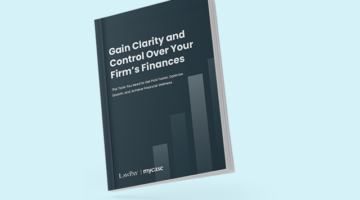
Law Student Sues School For Making Him Retake a Class He Failed
Schools just can't get over that requirement that you "actually pass" classes to graduate.

Schools just can't get over that requirement that you "actually pass" classes to graduate.

Is there a better way to grade law school exams? And if so, would professors be willing to do it?

Please share your thoughts in this brief and anonymous survey.

* As we noted last week (third item), Judge Rosenbaum recognized that the government was bound to have phone records of the defendant since they were dragnetting the whole friggin’ country. Now the government has responded and predictably claims that this is all classified. [Southern District of Florida Blog] * Speaking of follow-ups, remember how NYU Law was using non-profit slush funds to pay for housing for professors? Well, they also provided sweetheart loans for summer houses. [New York Times] * The battle rages over the admissibility of audio expert witness testimony in the George Zimmerman trial. At least Howard Greenberg isn’t going to be there to call them all whores. [The Expert Institute] * With the NYPD’s “stop and frisk” policy about to get smacked down in federal court, it’s important to remember there’s nothing wrong with “stop and frisk” — just every single way that it’s been applied for over a decade. [Vocativ] * For our law professor readers, cognitive psychology says you get more fair results if you grade exams by question rather than grading the whole exam at once. It also means you’re not as likely to find 15 whole exams missing and fail to grade one student’s exam for weeks on end (in fairness, I ran into Professor Winkler and he assures me he eventually graded that exam). [Concurring Opinions] * Communications between Superman and a minister in Man of Steel would likely be shielded by Kansas law. A better question is what law are we going to use to prosecute Superman for wontonly demolishing a city? [The Legal Geeks] * If you’re living the Bitcoin lifestyle, you’re probably about to get taxed. [TaxProf Blog]

Here's another pathetic attempt to save law faculty from the burdens of actually educating people...

* Given the name and origins of the Tea Party movement, it actually makes perfect sense that their groups got grief from the IRS. [Washington Post] * Wachtell Lipton weighs in against the practice of shareholder activists offering special compensation to director nominees. [Dealbook / New York Times] * A law professor, Joshua Silverstein, argues that schools should embrace grade inflation. (But haven’t most of them done this already?) [WSJ Law Blog] * Facebook shareholders might not “like” this news, but Ted Ullyot is stepping down as general counsel after almost five years. We’ll have more on this later. [National Law Journal] * The Brooklyn DA’s office is reopening 50 murder cases that were worked on by retired detective Louis Scarcella (who looks oh-so-savory in the NYT’s photo of him). [New York Times] * In news that should shock no one, Nicholas Speath’s dubious discrimination case against Georgetown Law has been dismissed. [The BLT: The Blog of Legal Times] * Not long after leaving Cravath for Kirkland, Sarkis Jebejian is putting together billion-dollar deals for private-equity clients. [Am Law Daily] * Professor Jeffrey Rosen reviews an interesting new book, The Federalist Society (affiliate link), authored by Michael Avery and Danielle McLaughlin. [New York Times]

* Maker’s Mark will not get diluted after all — likely causing a shortage. Start hoarding mediocre bourbon, folks! [Wonkblog] * If you’ve ever wondered what the Supreme Court feels like to a pro se petitioner, here’s your answer. “Simply put, the Supreme Court uses its desktop publishing and printing guidelines as a weapon against the American public.” So much for “the least dangerous branch.” [Aaron Greenspan] * “Nothing can be said to be certain, except death and taxes.” Russia’s taking that phrase to a whole new level by pushing forward with a criminal tax evasion trial against a dead man. This is the first case of its kind since United States v. Bernie Lomax. [Reuters] * Is the pressure mounting on the Washington Redskins to change their name? It’s an interesting take, but overlooks one important detail: Dan Snyder is a tone deaf jerk. [Sports Law Blog] * Computer science students realize that taking collective action to intentionally fail the test was better than trying to pass it. It’s like The Producers of education. And if this grading policy applied to 1Ls, there’d be at least one jerk who defected to ruin everyone else’s curve. [Volokh Conspiracy] * Ten points to Gryffindor if you know what “tumid” means. Because you’re going to have to know before you pass through Ohio again. [Legal Juice]

This tweak to your financial management seems like a no-brainer.

Punishing faculty might be the only way to make them do their jobs in a timely fashion...

How hard is it to write an exam for a course you've taught all semester? On a scale of one to ten -- ten involving programing a rocket ship, one somewhere around putting on pants in the morning -- where does formulating a law school exam rate? A two? During this finals period alone, we've got students from three law schools, including two law schools in the top ten, alleging that their professors couldn't be bothered to come up with fresh exams for this year's students....

We get it, law students: the curve sucks. Because the law school curve affects important things like class rank, law review eligibility, and employment opportunities, it can make or break your life. But can you fight it? A student at the University of Texas School of Law is trying -- albeit unsuccessfully -- to fight the powers that be....

Yesterday, we brought you a story about the plight of UGA Law students who were still jonesing for their grades. After having received a number of comments, emails, tweets, and Facebook messages, it seems like the moral of the story for rising 2Ls and 3Ls at UGA Law (and at every other law school) is […]

Position your firm for long-term growth with better financial visibility and control. Learn how to track performance, manage spending, and plan strategically—download the full e-book now.

Well, it’s the middle of June, and it seems that some law students are still waiting for their grades. As we know from past discussion of the issue, this is a fairly common practice. The only problem with it is that it keeps law students fiending for their last grade like a crack addict searching […]

It’s been a rough year in South Bend. A promising new head football coach led the Fighting Irish to a disappointing 7-5 regular season. The #5-ranked basketball team forgot to show up during March Madness (but at least the women’s team exceeded expectations). It was a year that many Irish fans would like to rewrite. […]

We’ve seen it in California; we’ve seen it in New York. Now it looks like Puff the Magic Grade-Inflating Dragon is heading for Washington, D.C. Yes sir, a school in the D.C. market has decided that the reason its students can’t get jobs has nothing to do with the quality of education or services the […]

We all know that in this legal economy, 1L grades are critically important. There aren’t enough good jobs to go around, and coming out of your first semester with a strong transcript can really help. This is why some law students flip out over changes (real or perceived) to grading policies or curves. But getting […]

* Hey Elie, check this out: “Money Tips for Young Lawyers.” The top tip: “Get on top of student loans.” [Alpha Consumer / U.S. News & World Report] * What matters more, experience or grades? [Lawyerist] * Who should use a legal recruiter — and who shouldn’t? Recruiter Dan Binstock explains. [The Careerist] * Sports […]